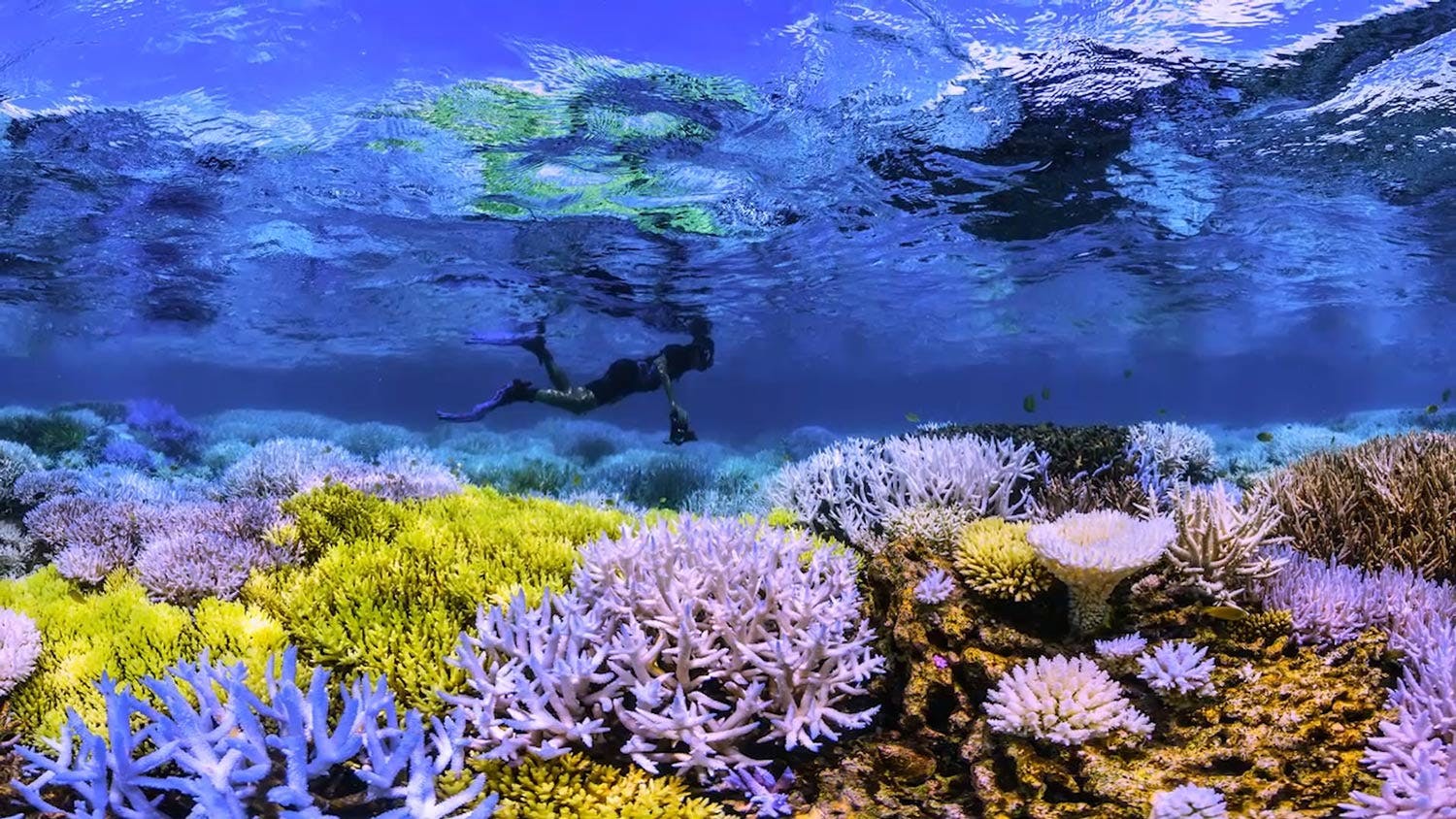The Gus List: 6 Eco Docs You Won’t Want to Miss
For when you’re sitting on your couch and need a little inspiration
In the mood for a good, sustainable movie? Gus has you covered, with a list of six of our favourite eco-documentaries. Curl up with one of these and you’ll walk away a little wiser about the challenges facing humanity and the planet, as well as (we hope) a spark of inspiration to help you respond.
We’ve chosen these six films because they offer a window into the irreversible mark humans have made on the Earth, while highlighting individuals and communities working to pave a sustainable path forward. By focusing on community-based solutions, these documentaries lead us into the worlds of people whose lives are intimately entangled (intentionally or not) with some of the world’s biggest problems.
Anthropocene: The Human Epoch (2018, 86 minutes)
Directors: Jennifer Baichwal, Edward Burtynsky, Nicholas de Pencier
Anthropocene offers us a window into the massive geological effects that humans have had on the planet. The film draws on the work of the Anthropocene Working Group, a collection of geologists at the University of Leicester who argue that human actions have caused large-scale, permanent planetary changes so significant that the Earth has entered a new, unprecedented geologic time period: the Anthropocene. Through myriad long landscape shots from six continents and 20 countries, this Canadian doc paints an uncomfortably beautiful portrait of human destruction — documenting, in the truest sense of the word, Earth at its turning point.
How to watch: In Canada, rent it from the Cineplex Store or stream it on Crave. Elsewhere, buy it on Apple TV.
Angry Inuk (2016, 82 minutes)
Director: Alethea Arnaquq-Baril
It’s no secret that majority-white, mainstream animal activism often overlooks the social, economic, and cultural complexities surrounding its cause. Angry Inuk brings us to the Canadian Arctic, into Inuit communities affected by animal rights activism demonizing a practice vital to their survival: the seal hunt. The film profiles hunters, craftspeople, activists, and families that view the seal hunt as a vital source of food and work. They live in a harsh environment with limited economic opportunities, but their voices are often ignored in global conversations surrounding their livelihood. By giving them a platform, director Alethea Arnaquq-Baril highlights the importance of culturally aware, intersectional activism.
How to watch: In Canada, stream an hour-long version on CBC.ca. Elsewhere, stream the full-length film on Kanopy or Prime Video, or buy it from the National Film Board or on iTunes.
Urban Roots (2011, 91 minutes)
Director: Mark MacInnis
Urban Roots tells the tale of vibrant, emerging urban farming communities in downtown Detroit. Once the automotive capital of the world, Detroit is home to over 40,000 vacant lots that grassroots farmers and activists are repurposing to provide food, community connection, and meaningful work for themselves and their neighbours. When the documentary was made, unlicensed farming on abandoned lots was illegal, but the communities, which were largely African American, didn’t wait for bureaucratic permission. Urban Roots showcases their innovative work, while examining questions of race, politics, and equity related to the urban farming movement. In 2013, an ordinance protecting urban farmers was passed, and the movement remains vibrant today.
How to watch: Stream it on Kanopy, rent it on Vimeo, or purchase a DVD through Tree Media’s website.
Chasing Coral (2017, 93 minutes)
Director: Jeff Orlowski
This Netflix documentary follows a team of photographers, scientists, divers, and “coral nerds” on a race to document the rapid disappearance of the world’s coral reefs. The film becomes surprisingly emotional: Viewers watch the team grapple with the death of something they love deeply as they struggle to capture time-lapses of the Great Barrier Reef during a mass bleaching event caused by rising water temperatures in 2016. Educational but despondent, Chasing Coral is a moving and visually arresting record of climate change’s impact on the oceans, and a call to action to protect them.
How to watch: Stream it on Netflix.
Hands On: Women, Climate, Change (2014, 48 minutes)
Directors: Nupur Basu, Mary Kiio, Iphigénie Marcoux-Fortier, Liz Miller, Karen Winther
Even as climate change can feel like an abstract problem (too large to solve, too imminent to reverse), Hands On shows how solutions can move forward on a local scale by profiling five women from across the globe tackling climate-related issues in their communities. From Maheshvari, a woman keeping fishers safe from severe storms in her village of Veerampattinam, India, to Jasmine Thomas, the leader of a coalition against oil pipeline expansion through First Nations land in British Columbia, this doc shines a light on community activists putting the mantra “think global, act local” into action.
How to watch: Stream it on Vimeo.
The Radicals (2018, 55 minutes)
Directors: Tamo Campos, Brian Hockenstein
This documentary follows a group of professional surfers and snowboarders on a journey during which they examine their relationship with the environment and Indigenous peoples in British Columbia. As the group travels throughout BC, they meet with the Haida, Musgamagw, Namgis, Tahltan, and Xwisten communities, and discuss environmental concerns facing these communities, whose land is home to the same coasts and mountains the athletes use. By telling different stories about spaces that the athletes seemingly know so well, the film makes a compelling call for outdoor athletes to move towards a relationship with the land that isn’t purely based in their own enjoyment, but rooted in environmental advocacy.
How to watch: Stream it on Prime Video or buy it on Apple TV.
Edited January 31, 2022: Updated purchase and streaming links.
